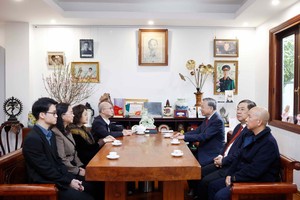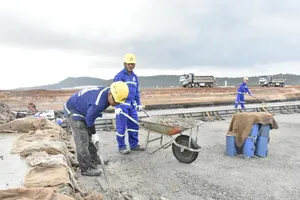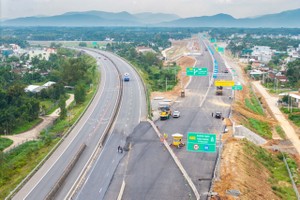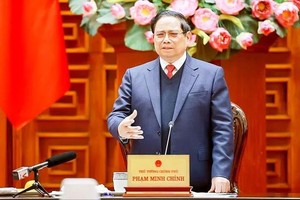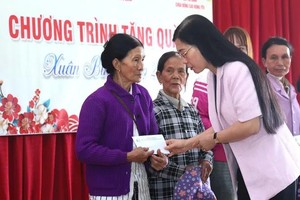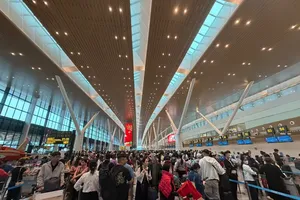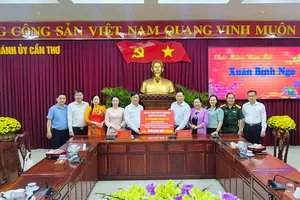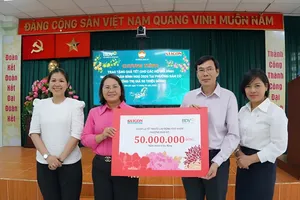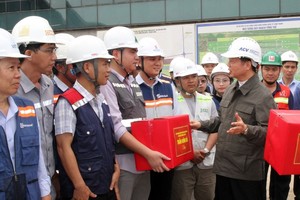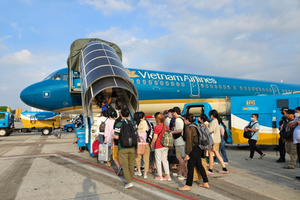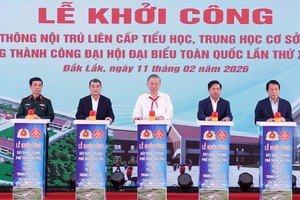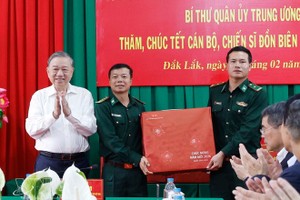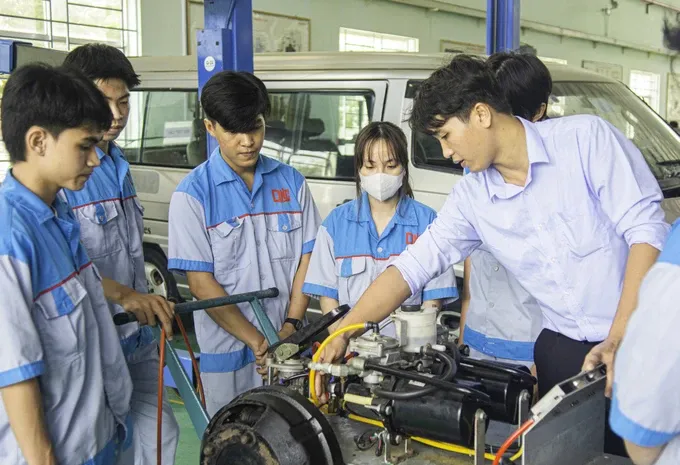
Chairman Nguyen Van Ut of the People’s Committee of Long An Province emphasized the importance of proactive planning to meet the high-quality human resources (HR) demands of foreign direct investment (FDI) enterprises in the province. Long An has frequently hosted meetings and discussions with businesses to understand their specific HR needs (language skills, professional skills) and tailor training programs accordingly.
Chairman Tran Viet Truong of the Can Tho City People’s Committee highlighted the role of technology in connecting job seekers with employers. The city has developed the ‘Employee – Employer Seeker’ database for both unemployed laborers and businesses to update their information. These data are also optimized for policy making labor market administration. Meanwhile, businesses are encouraged to actively participate in recruitment activities and provide competitive compensation and benefits packages to attract and retain top talents.
Standing Vice Chairman Truong Canh Tuyen of the People’s Committee of Hau Giang Province underscored the importance of streamlining the structure of state units to attract and retain the talented. In the upcoming time, the province will tighten its monitoring of the annual performance evaluation of civil servants and public employees.
This will enable the province to effectively use its high-quality HR, to offer training for those in need, and to improve the performance of state management, particularly in fulfilling the targets set in Resolution 05 of the Standing Committee of Hau Giang Provincial Party Committee on human resource development in the 2021-2025 period, with a vision to 2030.
The province will also continue to adopt Resolution 22 by the provincial People’s Council, stipulating supporting policies for post-graduate training and self-learning after university graduation. Simultaneously, it will attract and retain HLHR in key sectors such as industry, urban agriculture, and tourism.
General Director Vo Thanh Phong of Hau Giang Maritime Services One-member Co. Ltd. shared that the province has taken proactive steps to address the severe shortage of high-quality human resources in the logistics sector. The province has collaborated with universities in the Mekong Delta region to introduce logistics training programs, with the first batch of graduates from Can Tho University expected to enter the workforce in 2024. To better use newly graduated logistics laborers and stop brain drain, his company has offered further in-depth training.
He proposed that the Government should introduce supporting policies for the development of logistics HR via regular training sessions and seminars, which are totally or partially financed. It is advisable to reduce training fees for logistics courses at undergraduate level and below.
Director Ngo Minh Long of the Agriculture and Rural Development Department of Hau Giang Province stressed the necessity to train capable HR to become civil servants and public employees in the agricultural sector, especially for cooperatives. Currently, most cooperative management staff are elderly, whose qualifications are still low and abilities to access technology or to adapt to the market are still limited. This severely harms the growth of cooperatives.
In the coming time, the province will continue to work with institutes, schools, and foreign organizations like Agriterra of the Netherlands and DRGV of Germany to support the organization of training courses to improve the management and operational capacity of agricultural cooperatives for the positions of director, chairman of the cooperative board, while updating knowledge about smart agriculture, circular agriculture, market economy, communication skills, sales skills, and digital transformation in agriculture.
It is also essential to adopt policies to attract management and scientific staff to work at cooperatives. The state budget supports 100 percent of the salary for management and scientific staff with appropriate training majors, who are approved to work at cooperatives. Each unit is allowed to support one such staff member for up to 3 years.
Director of S.I.S Can Tho International General Hospital Tran Chi Cuong, MD PhD, mentioned the need to update professional skills of the medical HR in using advanced technologies in disease diagnosis and treatment. After forming a capable medical system for each province, it is possible to identify the demands for high-quality HR in specific fields for proper training to answer those needs.
Along with this knowledge update is the upgrades of medical equipment so that the trained staff can best exploit their newly gained expertise. After that comes the problem of retaining the talented via suitable incentive policies and a rich source of patients for doctors to practice to gradually improve their skills.
Deputy Director Tran Thai Nghiem of the Can Tho City Department of Agriculture and Rural Development voiced the urgent need to apply encouraging policies to the agricultural staff in remote areas. To attract high-quality HR resources to meet the requirements of agricultural development, farmers, and rural areas today, it is critical to reform the curriculum to be suitable for the requirements of agricultural development in today's era. More importantly, adopting suitable policies to attract high-quality HR in agriculture to work in remote areas is a vital step.



